 The Global Classroom Project at Mt. View has had a robust start. We, the students of Mr. Mike Hardy’s Government and Journalism classes are entering the third year of a learning partnership with the students of Mr. Joel Alba at the International Christian School of Vienna, Austria. We are also forming new partnerships in Bergamo, Italy with Ms. May Ko’s English students and on the island of Barbados with the Economics and Personal Finance students in Ms. Latoya Prescod’s classes. During this first quarter of the school year, students in Vienna and Fairfax introduced themselves via Padlet and researched questions about the 17 United Nations Sustainable Development Goals (SDGs). We have heard from students in Austria about the problem of microplastics and garbage in the Oceans (SDG 14) as well as global access to clean water and sanitation (SDG 6). After analyzing the campaign promises and election results in early November and recognizing the many levels of Government in our Federal Democratic Republic, our Mt. View Government students researched current events related to Responsible Consumption and Production. (SDG 12).
The Global Classroom Project at Mt. View has had a robust start. We, the students of Mr. Mike Hardy’s Government and Journalism classes are entering the third year of a learning partnership with the students of Mr. Joel Alba at the International Christian School of Vienna, Austria. We are also forming new partnerships in Bergamo, Italy with Ms. May Ko’s English students and on the island of Barbados with the Economics and Personal Finance students in Ms. Latoya Prescod’s classes. During this first quarter of the school year, students in Vienna and Fairfax introduced themselves via Padlet and researched questions about the 17 United Nations Sustainable Development Goals (SDGs). We have heard from students in Austria about the problem of microplastics and garbage in the Oceans (SDG 14) as well as global access to clean water and sanitation (SDG 6). After analyzing the campaign promises and election results in early November and recognizing the many levels of Government in our Federal Democratic Republic, our Mt. View Government students researched current events related to Responsible Consumption and Production. (SDG 12).
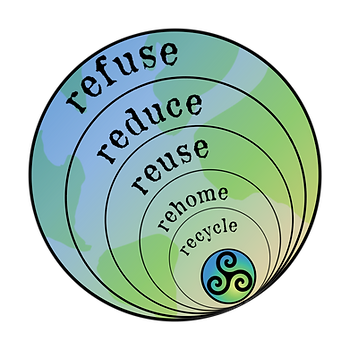
November is a month of Thanksgiving. As Americans, we are grateful for this land of abundance. It is also a time to remember our roots. It is Native American Heritage month and as we look at United Nations Sustainable Development Goal #12 For Responsible Consumption and Production, we are reminded of Native American cultures who had a certain harmony with our natural resources. On Tuesday, November 26th, just before the holiday break, we were fortunate enough to host an expert in our local community on doing the work of SDG 12.5;By 2030, substantially reduce waste generation through prevention, reduction, recycling and reuse.
Ed Ehlers background Info:
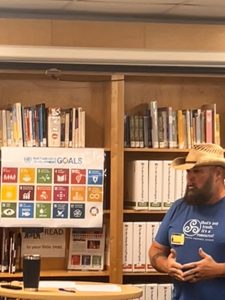
Ed is the founder of the unique and innovative Resource Recovery Project, a true, single stream, curbside recycling plus program. The only program of its kind, it has operated since April 2021 and has processed over 40 tons of resources with a 96% recovery rate.
As an executive leader with over 20 years’ progressively responsible experience, Ed has directed operations, facilities management, and logistics functions for global facilities management provider, a global consumer products manufacturer, a global energy company, a global defense contractor and military special forces.
Before joining the private sector, Ed served 10 years in the U.S. Army, achieving the rank of Major. His experience ranged from serving as platoon leader and battalion logistics officer in Europe, to commanding a U.S. Special Forces Group Service Detachment that provided logistics for over 50 deployments, and finally planning and supervising ceremonies for the United States Military Service Secretaries, Chiefs of Staff, Heads of State, and the President of the United States.
In addition, Ed is an accomplished public speaker, award winning children’s book author and artisan. He has been a Certified Facility Manager and Facilities Management Professional in good standing with the International Facility Management Association and a Commonwealth of Virginia Notary Public. He served on the Advisory Social Services Board for Fairfax County, Virginia, and the Catholic University FM Program Advisory Committee.
Ed graduated from Fordham University, New York, with a B.A. in political science and a minor in international studies.
As part of the Global Classroom Project and the Get to Green environmental initiative at Mountain View, Mr. Ed Ehlers, an engaged community member in Fairfax County is a featured guest speaker encouraging student action on resource recovery. https://www.recoveringresources.com/blog
Town Hall Meeting on TUESDAY NOVEMBER 26 was hosted from 8:00 – 8:50 AM in the Library.
- An introduction to Mr. Ed Ehlers and his RESOURCE RECOVERY PROJECT for the purpose of community
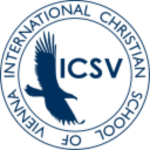
40 students from ICSV joined our meeting via zoom on 11/26/24. They shared information regarding the resource recovery rates in Europe which are twice that of the United States and they asked questions promoting individual actions to make a difference. engagement and action on the United Nations SDG 12
- A live GCP Dialogue with student delegates here at Mt. View as well as a zoom meeting link to students at our partner school in Vienna, Austria, and partner teachers, Maria and Francesca in Modena, Italy at Isitituto Paradisi.
- The engagement of Curriculum standards relating to Social Justice, Human Environmental Interaction, and the FCPS POG skills.
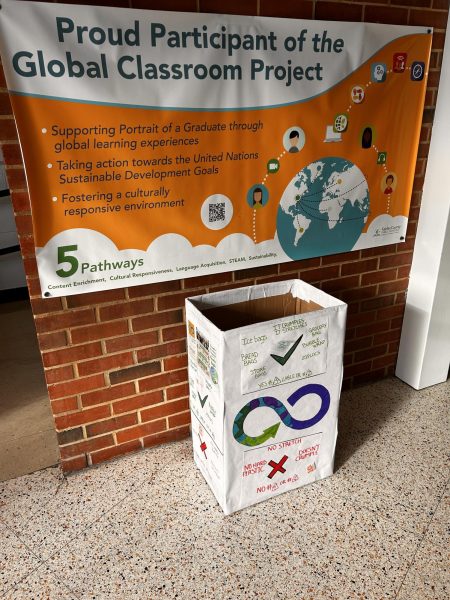
Student Reflections After Attending
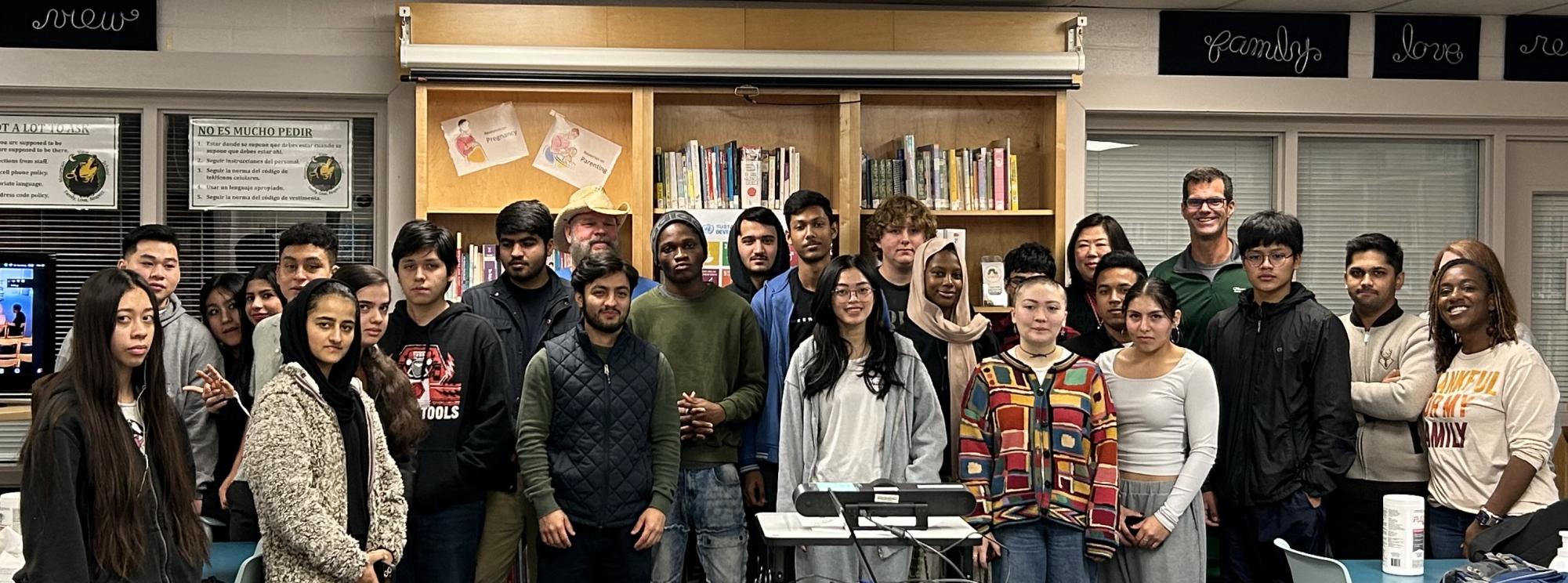
From the meeting today, I have learned a lot. I realize that much of this is all new to me. I know I can make a difference now that I understand some of the problems we face. Below is a summary of notes from our meeting – Kim
- It’s good to change from using plastic bags to recycling bags in daily life.
- Report the brands that use packaging that is not friendly to the environment. Instead, we can support brands and companies that use sustainable materials.
- Social media such as Tiktok is a good way to make people take action to recycle products
- Reusable shopping bags are simple solution to reduce pollution issue
- We have to make a decision to refuse to buy some products that are harmful to the environment.
In my research on SDG 12 current events, I learned that the world is producing far more plastic every year than it is reusing or recycling. The problem can seem impossible to solve. Mr. Ed Ehlers reminded me that one person can truly make a difference with rippling affects around the world. Below are three interesting things that I learned while attending this GCP Town Hall Meeting. -Mauricio
There are a wide variety of recycling sectors, which range from the easiest to the almost impossible to recycle. Thanks to these sectors, they can be classified into branches that make the work easier.
Ed is a citizen who has served the United States government in the Air Force. This lets us know that in addition to being loyal and fighting for his country, he is an example of a citizen who wants to make a change in our society. Trying to recycle and reduce the waste of products that can be reused.
Ed is a very talented and dedicated citizen. He has also written a children’s book that reflects his broad feeling of solidarity and sympathy by transmitting one of his stories to the little ones in the home.
https://books.google.com/books/about/Lily_Lucy.html?id=9tLiyQEACAAJ&source=kp_book_description
He spoke about something that I care about and I just wrote an essay about it for English class. The practice of greenwashing is something that is growing in the clothing industry. I learned in Government class that the Securities and Exchange Commission or the SEC is pursuing heavy fines on corporations for greenwashing; or trying to say that they are environmentally friendly as part of their marketing strategy when ic fact they are not. -Madeline Z
- Companies sometimes practice greenwashing, they mislead consumers into thinking their products are environmentally friendly.
- Even though glass is one of the most recyclable materials, it is no longer recycled because the glass sometimes breaks when being loaded onto trucks and glass shards can cause a problem
- Ed believes in combating the problem locally instead of globally, because if we can get our community to come together and help fix the problem, we can be the blueprint and inspire other counties and communities to also come together and do the same
Ed’s way of explaining his work was excellent, and I learned so much from him about topics I had doubts and questions about. He emphasized the importance of refusing things that aren’t necessary. For example, he shared a story about going to a market and seeing good-looking, usable bags. However, since he already had 50 bags at home, he didn’t even consider buying more.
One of the questions I had prepared for him, which I planned to ask during his speech, was: How do you feel about contributing to society by helping reduce waste in areas such as landfills, waterways, and urban spaces that often harm our environment? Are you satisfied with the results so far, or do they align with your expectations? However, I found my answer through his talk and the questions others asked him. He explained that he has partnered with several organizations, including large companies, to collect reusable or recyclable materials. He then distributes these items to the public, making his work both profitable and eco-friendly at the same time. ~AYUSH
Questions From Students in AUSTRIA and the USA
What are the environmental and economic impacts of recycling and reusing on local communities, and how can individuals encourage broader participation in these initiatives?
How does contamination in recycling bins affect the efficiency of recycling programs, and what steps can individuals take to recycle correctly?
What role do businesses and industries play in promoting recycling and reusing, and how can they make their operations more sustainable?
What certain UNSDGs are addressed if recycling and reusing are consistently practiced?
How can students at Mt. View or any other school receive a benefit of the wealth created by better practices in REUSING, REPURPOSING and RECYCLING?
Where do you do most of your work and who do you work for?
Do you make money or how would you define the profit of your work?
How can the SDGs be effectively localized to address specific challenges in different countries or communities?
What are the sustainable development goals?
The Sustainable Development Goals (SDGs) aim to transform our world. They are a call to action to end poverty and inequality, protect the planet, and ensure that all people enjoy health, justice and prosperity. It is critical that no one is left behind.
How many?
17 Sustainable development goals
Who created these goals?
The United Nation created these goals in 2015. The target for these goals is 2030
The United Nations is an international organization founded in 1945. Currently made up of 193 Member States, the UN and its work are guided by the purposes and principles contained in its founding Charter.
The UN has evolved over the years to keep pace with a rapidly changing world.
But one thing has stayed the same: it remains the one place on Earth where all the world’s nations can gather together, discuss common problems, and find shared solutions that benefit all of humanity. LINK
Who is engaged in the solutions to these goals?
- Students and teachers at all levels of education
- Businesses and corporations
- Lawmakers and governments
- Advocacy groups
- Individual citizens
The United Nations with 169 targets that 191 UN Member states have agreed to try to solve and achieve solutions.
What is SDG 12?
https://www.globalgoals.org/goals/12-responsible-consumption-and-production/
Sustainable Development Goal #12 is A goal to create more Responsible consumption and production having a direct effect on other goals such as SDG 6.7.13.14.15.
In this upcoming holiday season, when we are often prompted to increase our CONSUMPTION, what can we do instead to preserve the gift of our natural environment and scarce resources?
Examples related to SDG 12 in Current Events.
The importance of International Treaty Agreements
In Mississippi; poor rural communities are experiencing air pollution from a British multinational wood pellet industry. Who uses Wood Pellets?
In 2016 a British multinational corporation opened a factory in Mississippi to make wood pellets; as a replacement fuel for coal.
Wood pellet stoves are in demand as the cost of natural gas increases. The production of wood pellets in Southern states is creating jobs while causing health problems because of pollution.
Fines are not solving the problem.
Poor communities are suffering
We have become a sacrifice zone, and we feel like you don’t care about us as people,…“You are willing to pollute our community and extract our natural resources for your own economic gain.”
Plastic production Globally
Important Facts that define the problem: The irresponsibility to protect the common environment as well as lack of educational knowledge.
The poor management of plastic waste. The recycling challenges, only 9% of all plastic waste produced has been recycled. While 79% accumulates in landfills or the natural environment.
Ways of engaging in the SOLUTION
Engage in community initiatives focused on sustainability. Whether it’s participating in clean up drives, workshops, or local sustainable events. Also, we can support brands and companies that use sustainable materials. Moreover, practicing upcycling and recycling is a good way to reduce the waste.
Promote reusable products, it’s a fact that a lot of people follow the commercial and the new trends. We can use this as a tool to promote the use of many products and recyclables, encourage of reusables bags, bottles containers to reduce the manufacturing of plastic objects.
The government can participate in this solution. Banning the use of plastic bags in the big commercial stores. This can be easily a law in many states that would help to reduce the amount of plastic waste in the U.S.
California sues ExxonMobil for “lying about recycling plastic”
An attorney stated that “Less than 5% of plastic is recycled into another plastic product.” The nation feels less guilty about their waste when they put their plastic in the recycling bin, but instead of going where they think it goes into landfills and oceans.
Recycling in Hampton Roads Virginia
Facts about recycling in Hampton, Virginia
- Recycling Drop-off: Hampton has easy-to-use recycling drop-off sites for paper, plastic, cans, and glass .
- Advanced Sorting: Recycling centers use technology, like AI and mechanical screens, to efficiently sort materials .
- Education Campaign: The “Start Smart, Recycle Right” campaign helps residents recycle properly and avoid contamination, like plastic bags .

